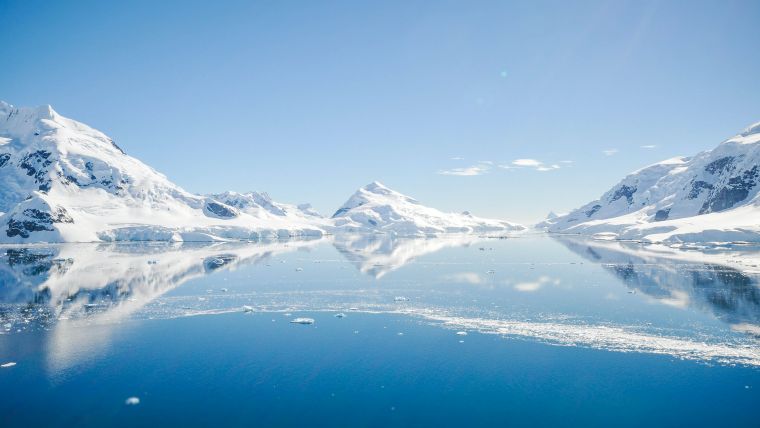The Ocean Race helps gather rare data in remote Antarctic regions
The Ocean Race is spearheading an Antarctic science mission to gather crucial ocean health data in the rarely explored southern fringes of the planet. The initiative aims to address the scarcity of information in these remote areas, leveraging The Ocean Race’s commitment to collecting rare data.
Using specialized science equipment developed for and utilized during The Ocean Race 2022–23, the mission will unfold over four months on a sailing yacht tailored for polar expeditions. Steering this effort is Antarctic veteran and sailor Stephen Wilkins, who boasts 22 visits to the region and will oversee the collection of vital data and samples.
Departing from the Falkland Islands, the yacht will navigate to the Bellingshausen Sea in Antarctica, remaining amid the ice for two months, predominantly south of 70 degrees, before heading north to Chile.
Microplastics
A pivotal aspect of the mission involves capturing 60 water samples – 40 during sailing and 20 when anchored – to test for microplastics. The National Oceanography Centre (NOC), a scientific collaborator of The Ocean Race, will conduct the analysis. This groundbreaking assessment will offer insights into microplastic size, number and chemical composition, advancing our understanding of plastic pollution spread and origin.
Despite The Southern Ocean being a well-trodden course for The Ocean Race, this marks the first time that its equipment will be employed in the Southern Ocean outside the race context.
Dr Katsiaryna Pabortsava, marine biogeochemist at NOC, underscored the significance of these samples in comprehending microplastic abundance, characteristics, sources, fate and impacts in the Antarctic region: “Scientists will get a unique opportunity to investigate how microplastics are transported to the Antarctic and how they disperse through the ocean depth and accumulate on the seabed. This is crucial for our understanding of the risks these contaminants pose to the unique Antarctic ecosystem.”
The expedition will also feature The Ocean Race’s OceanPacks, which will measure various ocean data throughout the trip, including oxygen, carbon dioxide, salinity, water temperature and atmospheric pressure. This rarely captured data at such latitudes holds high value for the race’s science partners, including GEOMAR Helmholtz Centre for Ocean Research, Ifremer and CNRS. The Ocean Race is therefore helping to gather rare data in remote Antarctic regions, contributing to climate change impact research and predictions on ocean response to future climate changes.

Impact of human activities
Stefan Raimund, science lead for The Ocean Race, emphasized: “Though the ocean is considered vast and largely inaccessible, this has not protected it from the impact of human activity. With its record low levels of sea ice and the catastrophic breeding failure of emperor penguins this year, Antarctica is a clear example of this.”
“Science is the most powerful weapon we have in fighting the decline of the ocean’s health, which is why we are capitalizing on opportunities such as this Antarctic expedition to reveal the impact of human activity on the most remote parts of the planet. The more we know about the health of this region, which is critical to the global climate, the better it can be protected.”
The Ocean Race stands out as the only team sport globally that requires all participants to engage in vital ocean data collection. It is also the sole sporting event with a science programme extending to external competitions (recently utilized by a team in the Transat Jacques Vabre) and expeditions, such as the Antarctica trip. The science programme, established with Premier Partner 11th Hour Racing, holds particular value for scientists as teams in the round-the-world race acquire information from ocean areas inaccessible to research vessels, addressing critical knowledge gaps. Post-analysis, these findings contribute to reports and databases influencing business and government decisions regarding the environment.
Race Chairman of The Ocean Race, Richard Brisius, is set to discuss the science programme at the United Nations Climate Change Conference, COP28. He will be part of a speaker line-up sharing innovative ocean climate science solutions in an Ocean Climate Spotlight session organized by UNESCO’s Intergovernmental Oceanographic Commission and OceanX.
The Ocean Race actively contributes scientific data to the Ocean Decade Odyssey project, endorsed by the UN Decade of Ocean Science for Sustainable Development (2021-2030). This initiative supports efforts to reverse the cycle of decline in ocean health and create improved conditions for sustainable development of the ocean.
Earlier this year, The Ocean Race introduced a dedicated data visualization platform for exploring the data: theoceanracescience.com.















